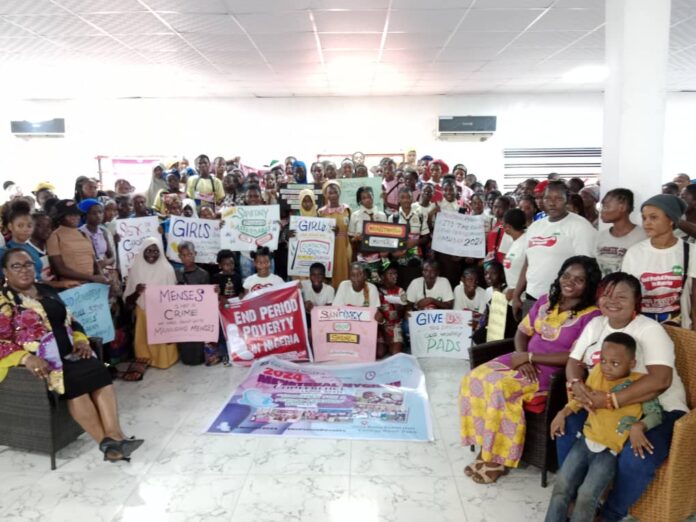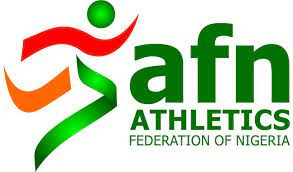By Ishaya Ibrahim
Three incidents make a strong case for schoolgirls to be given free sanitary pads, especially in low-income communities.
The first happened in Makoko, a suburban Lagos community where a schoolgirl told child rights activist and executive director of CEE-HOPE, Betty Abah, that she pinches from her grandmother’s mattress to cushion her monthly flow. It was in response to how she manages the flow without money for sanitary pads.
Abah jokingly told the young lady that the mattress would soon run out.
The second case was in an essay entry submitted for a competition organized by ace journalist and activist Funke Treasure. The essay competition was to encourage young girls to tell their own stories on menstrual poverty.
Treasure, who was a speaker during the 2024 World Menstrual Hygiene Day held by CEE-HOPE to mark the event, recalled that one of the winning entries was the essay by a young lady from Badagry in Lagos who narrated that on the day of her confirmation (a Catholic Church religious ceremony where participants are all dressed in white), unknown to her, menstrual blood stained her white.
The young lady said as she stepped out to receive the blessings from the priest in the full glare of hundreds of worshipers, one woman screamed at the top of her voice to denounce her from receiving the priestly blessing.
“When she stood up from the congregation to take the sacrament from the clergyman, she didn’t know that she had stained. As she knelt, a woman shouted from within the congregation – No! It cannot happen!
“Her mother came out and took her away. That was the first time she experienced menstrual stigmatization and how people could be mean,” Treasure said.
The third is data from the UN children’s agency, UNICEF, which estimates that one in 10 African girls misses school during their periods because of period poverty (lack of money to buy sanitary pads). This means they fall behind in their studies and may drop out of school.
Treasure said the plight of these girls in period poverty informed her decision to join the effort of giving out free pads to schoolgirls. “I decided I would join people like Betty Abah and many other women bringing pads to girls and women in low-income areas in the country.”
She said the government lacks a comprehensive menstrual health policy for girls, even children.
“Children’s Day was May 27. I searched and searched, and I’m yet to see a policy from our government that every child born in Nigeria is entitled to this and this, like they do in Ireland, like they do in the U.S., like they do in the UK. What is the benefit for the Nigerian child?
“The next day (May 28) was menstrual hygiene day. Again, I waited whether the government would make a pronouncement. Nothing from the government,” Treasure lamented.
She said the government could afford to give every schoolgirl a menstrual pad. “If we have extra money to support people going on religious pilgrimage, then we can do this perfectly well.”
Weighing on the issue, Ambassador Dr Unyime Ivy Ubong-King, co-founder of Ubong-King Foundation, appealed to the government to wave taxes on sanitary pads to make it affordable if they can’t give it free.
“The government should reduce the tax implication on these pads if they cannot give it out free. If you look at what the government is spending on other sectors, like pilgrimage, I believe it can be free,” said she.
In her remark, Abah said the event, which held on June 1 in Lagos, was to draw attention to period poverty which occurs to women and girls from low-income backgrounds who don’t have money to buy pads.
She said: “We are very excited at the turn out of about 300 girls for our 2024 Menstrual Hygiene Conference. We started this in 2018 and it keeps getting better each year. We appreciate our supporters Mal and Carol, and Mrs Sanaa Mahejer. We are also very grateful to our amazing speakers, our staff and our community coordinators. It was just an absolutely unforgettable day.
“We specifically curate this year’s version for girls from low income communities across Lagos where period poverty is a major issue and also so we can have an open conversation around it in light of the prevalent period stigma and all the silences around menstruation. Also, we can sensitize them on the need to be part of the campaign for better response from the government in terms of free distribution to school girls nationwide, reduction or removal of taxes on period products. But we are really happy with the spicing in terms of the great motivational talks, talks about hygiene, girl leadership, the competitions, and of course the gifts including sanitary products.”
Other speakers at the event include a youth mentor, Pastor Tobi Alli, and Funmi Falobi, a journalist and rights activist.
The event, which was held also in Benue, Rivers and Nassarawa States, attracted hundreds of girls who all received gifts including sanitary pads and bags.













